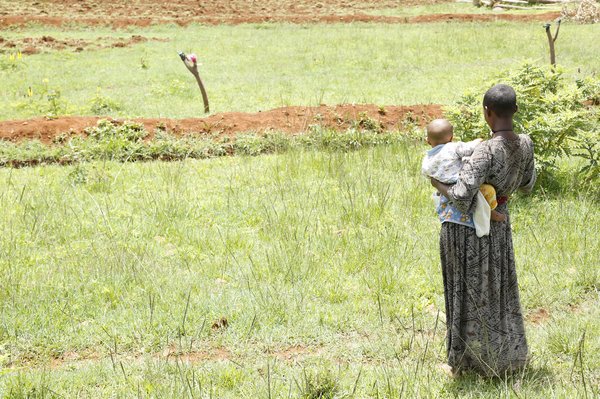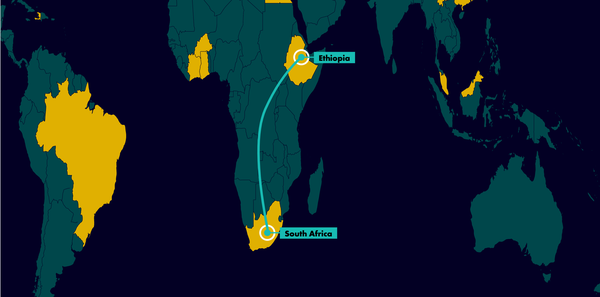
A queue of buses wait for migrant returnees to be taken back to their home areas. Photo via UNICEF Ethiopia/2013/Ayene. CC BY-NC-ND 2.0.
This policy brief was originally published by the United Nations University Centre for Policy Research. You can find the original publication by following this link.
South Africa is Ethiopia’s major destination country for South-South migration. Most migrants originate in Hadiya in southern Ethiopia. Drawing on research undertaken among Hadiya migrants and their families, this policy brief looks at the transformational role of remittances and migrant investments, the challenges migrants face en route to and within South Africa and in Hadiya upon their return, and considers policy interventions to enhance the development potential of migration.
Although migration to South Africa has generated transformative change, with significant transfers of both capital and skills and a new positive sense of self, there are downsides: increasing inequality between migrant and non-migrant households and urban land speculation that has displaced farmers and pushed land prices beyond the means of most households.
To mitigate the negative impacts of migration and harness its development potential in the specific context of Hadiya, the policy brief advances several recommendations for government, migrants, and regional organisations. These include:
- Securing bilateral labour agreements with South Africa to ensure that the rights of migrants are protected.
- Placing a moratorium on informal land markets to address rising inequality and protect farmers from migrant land speculators.
- Improving the investment climate to incentivize and channel migrant investments into productive sectors.
- Tailoring investment opportunities to migrant needs and comparative advantages – and encouraging migrants to develop a sense of social responsibility.
- Encouraging joint investment ventures to increase the visibility of migrants and strengthen their voices vis-à-vis government stakeholders.
- Providing business skills training for returnee migrants to ensure investments generate wider development impacts.



